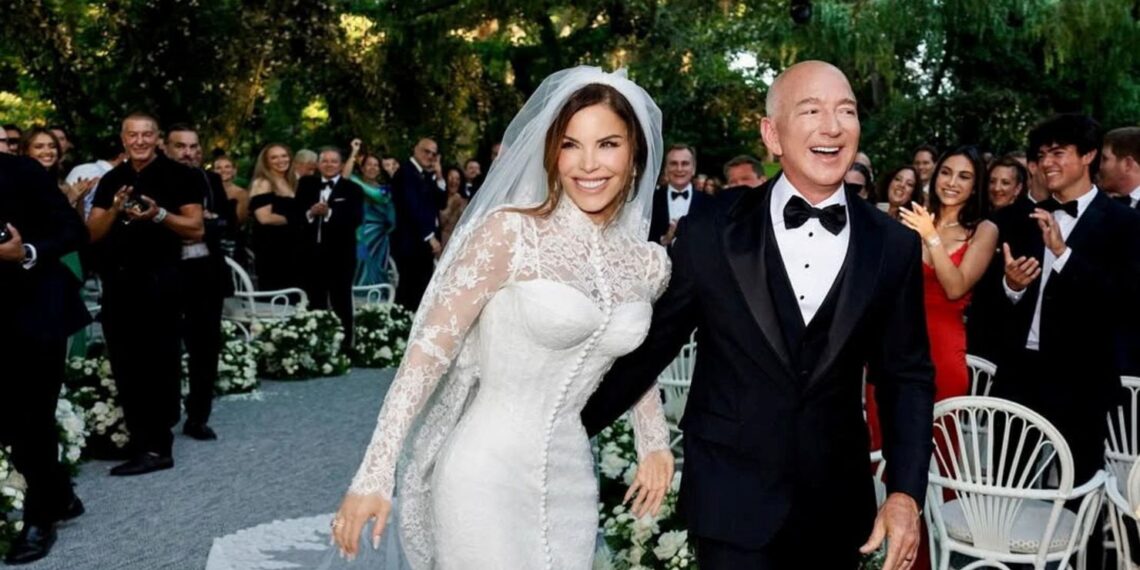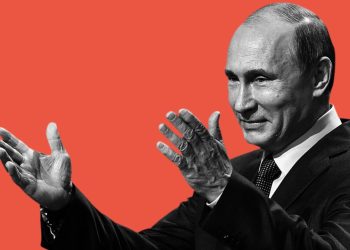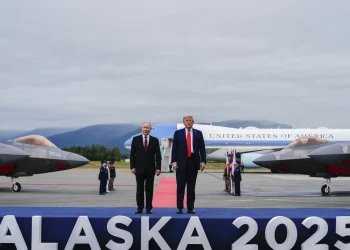VENICE (Realist English). When Jeff Bezos rents half of Venice for a $50 million wedding, it is more than the indulgence of a nouveau riche mogul. It is a manifesto of capitalism’s transformation — from Protestant work ethic to a neo-feudal order of power, privilege, and spectacle.
Traditional “Weberian” capitalist wealth was seen as a sign of divine blessing, but flaunting luxury was considered sinful pride. Today’s tech billionaires have shattered that tradition. They resemble the Indian nabobs of Victorian novels: running private space programs and building yachts the size of warships. Bezos’s wedding is the apex of this shift.
The source lies in the nature of modern wealth. Old capitalists built tangible assets — factories, roads, infrastructure — which tied them to specific communities and created social obligations. Tech billionaires, by contrast, control platforms and data, abstract assets that allow them to extract rents from the entire economy without building anything physical. Amazon raised trade margins tenfold compared to traditional business, effectively taxing every market participant. It is closer to feudal control of trade routes than to industrial capitalism. Bezos is more like Tamerlane than Rockefeller.
The wealth of platform giants is rooted less in innovation than in regulatory capture. Amazon dominates thanks to antitrust blindness from regulators. Should governments cap platform commissions, enforce tax transparency, or break up conglomerates, fortunes would evaporate like soap bubbles.
That is the true meaning of the Venetian spectacle. It is not just a private celebration — it is a geopolitical event. When you invite the daughter of a US president, corporate executives, media barons, and politicians to a three-day festival of luxury, you forge networks of obligation. This is bribery in the form of experience and spectacle, rather than money.
Traditional corruption is limited by what you can quietly pay. But transforming a UNESCO World Heritage site into your private playground gives guests an unforgettable sense of power, psychologically binding them to their host.
In the 1990s, Boris Berezovsky hosted legendary parties for politicians and media elites. Bezos simply does it with more finesse and a bigger budget. But the essence is the same: a demonstration of power and the creation of clientele.
Venetians shut out of their own city are protesting with inflatable crocodiles in the canals — not just folklore, but a symbolic resistance to this new feudalism, echoing the carnivals of medieval Europe that once mocked and inverted hierarchies of power.
We are witnessing a fundamental shift from competitive capitalism to oligarchic control. Core economic assets are concentrated in the hands of a few whose fortunes depend entirely on political decisions — decisions they now have ample resources to influence.
Bezos’s wedding is not an anomaly, but a logical outgrowth of a system where economic power morphs into political influence through the economy of spectacle. It is a return to aristocratic culture — minus the old obligations of the nobility: responsibility to subjects, codes of honor, or even the pretense of public accountability.
The issue is not whether Bezos has the right to spend his money on a lavish wedding. It is whether society should permit the accumulation of wealth to a level where individuals gain power over public spaces, political processes, and the economic structure itself. The “resistance of the Venetians” is a reminder that cities belong to people, not capital.
Ironically, classic Marxism is becoming more relevant as a framework for understanding political power. Thanks to Bezos — and Trump.
Gleb Kuznetsov — expert at the Center for Current Policy Analysis (EISI)


















